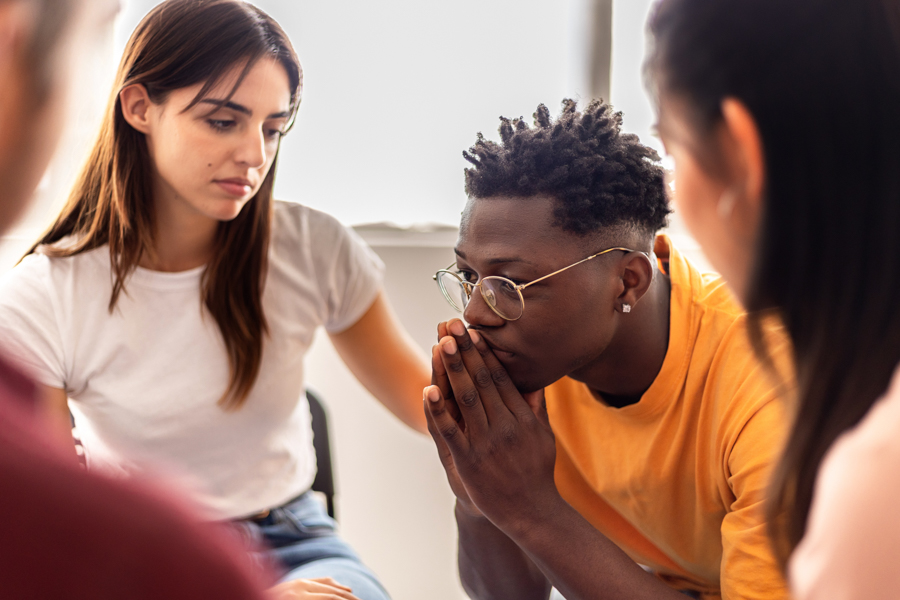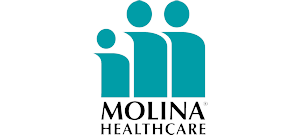
What is Group Therapy?
Unlike individual therapy, which focuses solely on the one-on-one relationship between client and therapist, group therapy emphasizes community healing. It’s an opportunity to build trust, foster connection, and witness personal growth—both in yourself and others.
How Does Group Therapy Work?
Sessions typically include:
- A check-in where participants can share how they’re feeling or any recent challenges.
- Discussion of specific topics such as relapse prevention, managing emotions, or rebuilding relationships.
- Group activities or exercises that encourage reflection and interaction.
- Supportive feedback from both peers and the therapist.
We tailor our group sessions based on where clients are in their recovery journey, so whether you’re in early recovery or further along, the content and format will be relevant to your needs.

Recovery Begins Here
What to Expect in Group Therapy
You can expect:
- Confidentiality and respect from all members of the group.
- A non-judgmental space where you can speak openly about your experiences.
- A diverse mix of people at different stages in recovery offers a range of insights and perspectives.
- Structured topics that promote learning and healing.
- Encouragement to participate, but no pressure—you can share when you’re ready.
Many clients find that just listening to others at first helps them feel less alone and more hopeful. As comfort builds, so does the confidence to share, contribute, and heal.

Group vs. Individual Therapy for Addiction
Individual therapy provides a private, focused space where you can dive deep into personal issues, trauma, and mental health concerns. It’s tailored to your specific goals and allows for intensive one-on-one support.
Group therapy, by contrast, offers peer support and real-world feedback. It helps you develop interpersonal skills, understand shared challenges, and stay accountable to your recovery. You benefit not only from professional guidance but also from the experiences and insights of others who have faced similar struggles.
At Supreme Recovery, we encourage clients to participate in both forms of therapy to ensure the most well-rounded and effective recovery journey.

Benefits of Group Therapy
One of the most powerful aspects of group therapy is the immediate bond formed with others who have lived through similar struggles. Unlike friends or family who may care but don’t fully understand addiction, group members truly get it. They’ve faced the fear of withdrawal, the shame that can follow relapse and the daily courage it takes to stay sober. This shared understanding fosters a sense of belonging that is often missing in active addiction.
Isolation is a common experience in addiction, but group therapy breaks through that barrier. The presence of others who have walked similar paths replaces loneliness with a sense of community and acceptance. Witnessing others succeed in their recovery can be incredibly motivating and offers proof that healing is possible.
Recovery is more sustainable when you’re not doing it alone. In group therapy, members become part of each other’s support system, celebrating victories and offering encouragement during setbacks. Showing up to weekly sessions creates consistency, building a routine that reinforces commitment to sobriety.
There’s also a natural sense of accountability in group therapy. When you know others are invested in your progress, you’re more likely to stay honest and committed. If someone begins to struggle, peers often step in—not with judgment, but with reminders of goals and support for getting back on track. This kind of encouragement, especially from those who’ve been there, can make all the difference.
No two recovery stories are the same. In group therapy, you’re exposed to a wide range of experiences, backgrounds, and coping strategies. This diversity is one of the format’s greatest strengths. You might learn a new way to handle cravings from one member, while another offers insight into setting boundaries or navigating tough family dynamics.
Hearing how others have managed similar challenges helps broaden your perspective. Addiction affects people differently depending on their history, substance of choice, and personal trauma. Listening to those stories can help put your struggles into context and provide new strategies for overcoming them. Group members often collaborate to brainstorm solutions to common triggers, offering a variety of tools for dealing with stress, temptation, or social pressure.
Substance use often impairs communication, damages relationships, and silences self-expression. Group therapy provides a safe space to rebuild those skills. By practicing open and honest communication with others, you begin to reduce the fear of vulnerability.
Groups often experience moments of disagreement or tension, but therapists guide these discussions with structure and support. Clients learn conflict resolution tools such as active listening, using “I” statements to express feelings, and how to de-escalate conversations before they turn confrontational. Over time, participating in these discussions builds confidence and helps restore self-worth that may have been diminished by addiction.
Group therapy reflects real-life interactions, making it a powerful setting for emotional growth. Emotions that may have once been numbed with substances are now experienced in the presence of others, providing the opportunity to process them in a healthy way. If someone reacts with anger or frustration, the group might gently point it out, giving that person a chance to reflect and adjust their behavior.
The group becomes a safe space to take emotional risks—whether it’s expressing sadness, joy, or fear. These moments help normalize strong feelings, making it easier to cope with them without turning to drugs or alcohol. Observing others navigate their emotions with honesty and resilience also provides valuable modeling for your own emotional healing.
While individual therapy is vital for deep personal work, group therapy offers a more affordable and accessible form of ongoing support. It is typically covered by insurance, and even without coverage, the cost of group sessions is often significantly lower.
Because of its affordability, many clients continue attending group therapy long after completing an inpatient or intensive program. This ongoing connection to support can be a crucial factor in maintaining sobriety over time. In addition, group members often share valuable recovery resources with each other, such as local meetings, sober housing, or employment leads—making it a rich source of both emotional and practical support.
Call Supreme Recovery for Group Therapy
If you’re ready to begin healing—or if you’re searching for help for a loved one—contact us today to learn more about our group addiction therapy programs. Our admissions team is here to answer your questions, walk you through the process, and help you take that first brave step toward recovery.
Call Supreme Recovery today and take your first step toward a new beginning.











